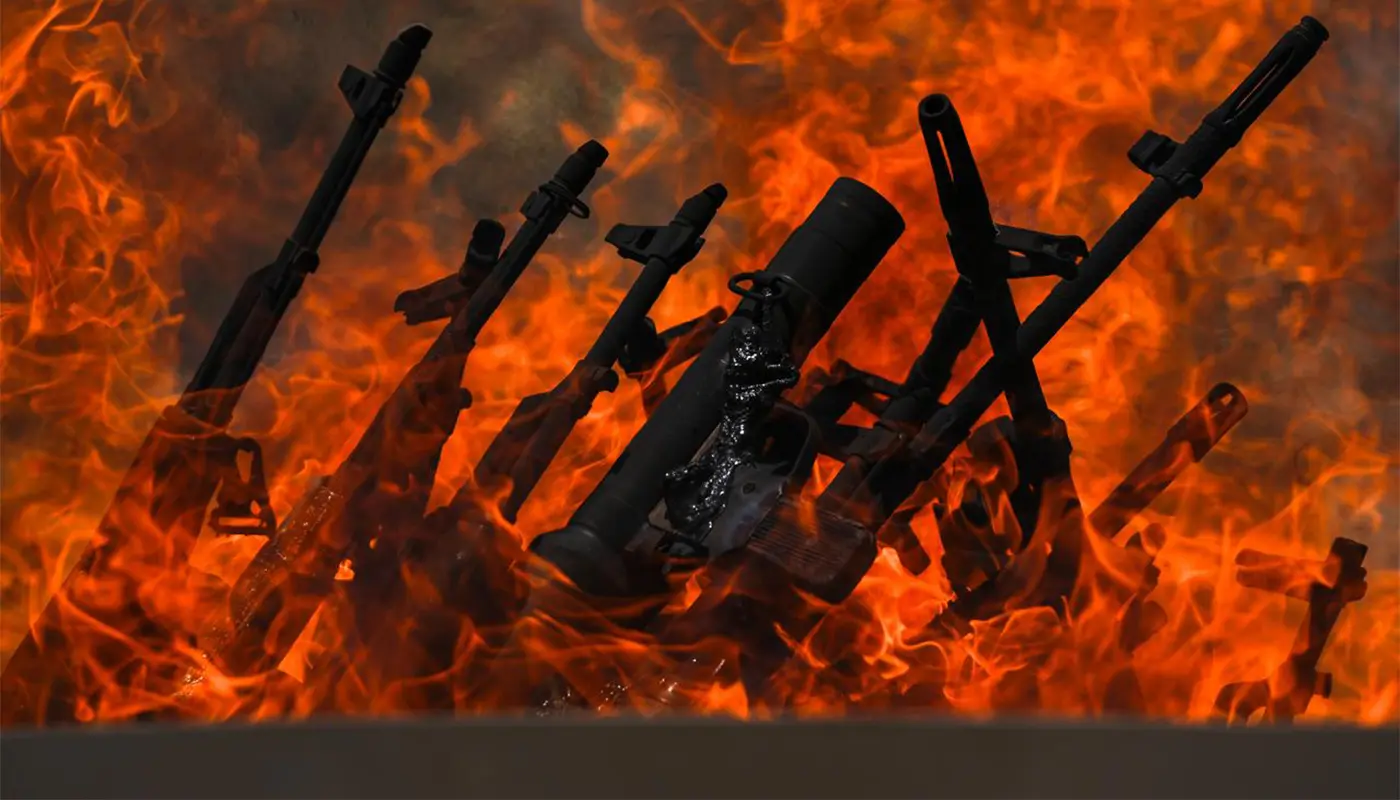A historic disarmament ceremony took place in northern Iraq on July 11, marking the symbolic beginning of the Kurdistan Workers’ Party’s (PKK) transition from armed struggle to political engagement. Around 20–30 PKK fighters, including four commanders, placed their weapons into a burning cauldron at a mountainous cave near Sulaymaniyah, formally initiating the disarmament process.
The ceremony represented the first tangible step in the peace process that followed the PKK’s May decision to dissolve its armed wing, a shift prompted by the February appeal of jailed leader Abdullah Öcalan for ending violence and embracing democratic methods.
The event was attended by officials from Iraqi Kurdistan, Turkish intelligence representatives, and members of Turkey’s pro-Kurdish DEM Party—underscoring regional support. Turkish officials called the process a “crucial and irreversible step,” with the AK Party projecting the disarmament will conclude within 3–5 months under joint monitoring.
Regional political figures responded positively. Kurdistan Region President Nechirvan Barzani hailed the event as a “new phase” in pursuit of peace, while MHP leader Devlet Bahçeli praised it as a step toward a “terror‑free Turkey.” DEM Party leaders emphasized the shift to legal, democratic struggle for rights and equality.
Although symbolic, this first disarmament ceremony is seen as a potentially irreversible turning point in one of the world’s longest-running insurgencies, which has claimed more than 40,000 lives since 1984.
Context & Implications
- Four decades of conflict: Founded in 1978, the PKK has led a violent insurgency against Turkey since 1984, seeking Kurdish autonomy and independence.
- Peace process underway: The group declared a ceasefire in March and announced its dissolution at a May congress; disarmament is scheduled to complete by September.
- Reintegration plan: Turkey has offered amnesty for non‑violent members and plans legal reintegration mechanisms, though civil society concerns and lingering militants pose risks of internal division.
- Regional stability: The disarmament is expected to ease tensions in southeast Turkey, northern Iraq, and indirectly affect affiliated Kurdish units in Syria.




